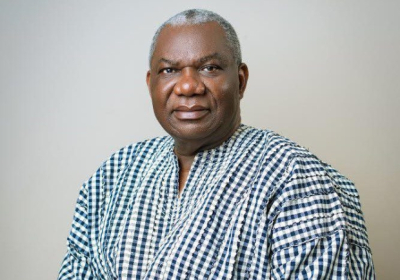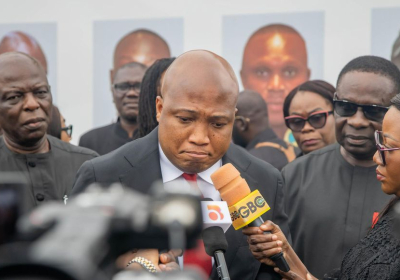This Election is Beyond NPP vs. NDC - Apostle Thomas Kusi Appiah Reveals

Apostle Thomas Kusi Appiah a Political Analyst Reveals His Prediction on Surprises and Challenges in the 2024 General Election, saying that this year's Poll is beyond NPP ana NDC
In a recent interview on Deglory TV/Radio's political talk show "Ghana Gyina Sen," Apostle Thomas Kusi Appiah shared his insights into what he expects will be one of Ghana’s most dynamic and surprising elections. As the nation prepares for the 2024 general elections, Apostle Appiah foresees a complex electoral landscape that goes far beyond the traditional rivalry between the New Patriotic Party (NPP) and the National Democratic Congress (NDC), and he urges Ghanaian voters to understand the unique dynamics at play this year.
Apostle Appiah began by emphasizing that this year's election will break from the usual pattern. Typically, in Ghana’s Fourth Republic, power has alternated between the NPP and the NDC every eight years, establishing a rhythm that many Ghanaians have come to expect. He noted that since 1992, this back-and-forth cycle has created a sense of balance. Between 1992 and 2000, the NDC held power, followed by the NPP from 2000 to 2008, the NDC again from 2008 to 2016, and the NPP from 2016 to the present. With each party developing a strong community of supporters, this rhythm became ingrained in Ghanaian political life. However, Appiah believes the 2024 election will disrupt this pattern.
Appiah highlighted the historical strongholds of each party. Traditionally, the Ashanti Region has served as a fortress for the NPP, while the NDC has enjoyed strong support from the Volta Region. In addition to the Volta Region, the NDC has also cultivated a strong base in the Northern Region and the Zongo communities, making these areas pivotal in their electoral strategy. However, Appiah pointed out a new factor that may change the dynamic this year—the influence of Dr. Mahamudu Bawumia, the current Vice President. Bawumia's popularity, he noted, has managed to bridge some of the historic divides, making the NPP more competitive in areas like the Volta Region, the Northern Region, and Zongo communities. This, he believes, could complicate the NDC’s traditionally strong hold on these regions.
Apostle Appiah also drew attention to internal tensions within the NPP that could have a significant impact on the election. According to him, there is a sense of disillusionment among some NPP members who feel they were overlooked for government positions. These individuals, who had high expectations for appointments or ministerial roles, may become internal dissenters, potentially even casting their votes for the NDC. Appiah suggested that the presence of these “opposition voices” within the ruling party might erode its base, making it more difficult for the NPP to secure a straightforward victory. He warned that these intra-party frustrations could lead to unexpected shifts in the voting patterns, as some disappointed NPP supporters might defect.
Reflecting on past election strategies, Apostle Appiah noted a shift in campaign focus that could affect both parties. He explained that in the past, political parties would address four primary issues during their campaigns: unemployment, insecurity, fuel prices, and the economy. However, this year, certain issues are off the table due to their sensitivity. Appiah observed that neither party is likely to campaign heavily on unemployment or fuel prices, as both issues remain contentious and could backfire against them. The recent economic struggles and soaring fuel prices have left both parties with limited leverage on these topics. Instead, Appiah suggested, the focus will shift more towards the economy and policies around security, areas where both parties hope to gain traction.
He also hinted at a broader strategy in play within parliament. According to him, recent maneuvers between the majority and the minority factions in parliament reveal a calculated effort by the NDC to weaken the NPP’s standing. Appiah believes the NDC has employed a strategy of stoking tensions and fostering a sense of instability, with the aim of making the NPP appear ineffective in the lead-up to the election. By doing so, the NDC hopes to paint the current government as unsteady and out of touch, weakening its appeal and limiting any last-minute efforts by the NPP to bolster their campaign message before the December 7 election.
As the election date draws near, Apostle Thomas Kusi Appiah advised voters to remain vigilant and informed, as this election cycle promises to be filled with surprises and unprecedented dynamics. In his view, both parties will employ a variety of tactics to capture votes, and Ghanaians should be prepared for unexpected twists.
Ultimately, Apostle Appiah's message was one of caution and awareness. With the future of the nation at stake, he called on Ghanaians to carefully consider the unique factors at play and make informed choices as they head to the polls.







